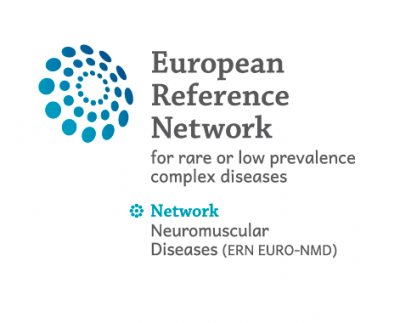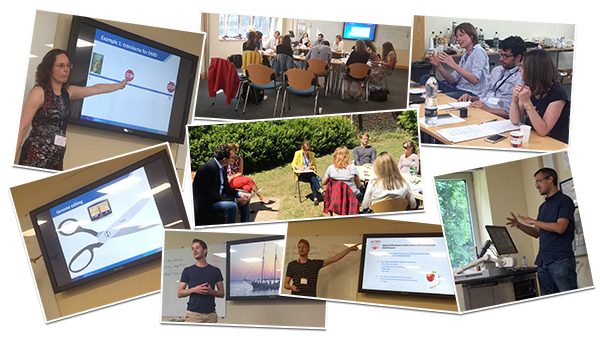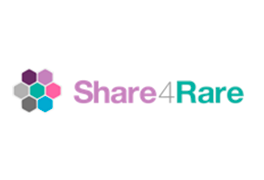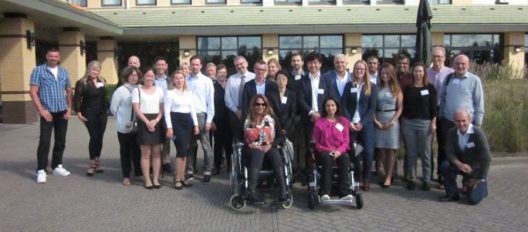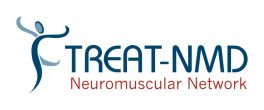|
| |
Translational Summer School apply now to attend! |
|
|
|
| |
Applications to attend our annual summer school, which in association with TREAT-NMD are now being taken. This unique course has been especially developed for researchers and clinicians interested in translational research. The week-long course which will take place in Leiden, Netherlands 1-5 July 2019 addresses the following aspects as it travels along this established pathway. - Bench to bedside research
- Regulatory system
- Clinical trials
- Outcome measures
- Patient communication
- Registries and biobanks
- Biomarkers and –omics
Attendees of the summer school will discover how networks such as the European Reference Network EURO-NMD and TREAT-NMD work and collaborate with patients and regulators to facilitate therapy development. Aspects such as standards of care, outcome measure development, biomarkers and others are discussed and debated during the week.
Numbers attending this course are limited to ensure that attendees enjoy a high quality experience. With this in mind we would encourage anyone who would like to attend the summer school to begin the application process as soon as possible.
|
|
|
|
| |
Next EURO-NMD webinar announced
Our next webinar is scheduled for Thursday 18th April 2019 and is entitled Amyloid Neuropathies: update in 2019 and will be delivered by Pr David Adams from the Neurologist Bicêtre in Paris.
Visit our webinar page to find out more about our webinars, what is coming, what has already been delivered and how to get involved.
|
|
|
|
| |
Share4Rare - Collective platform launch imminent
Share4Rare's new collective online platform will be launching on 2nd April.
The platform will connect rare disease patients and their families with the information and resources they need to become experts in their conditions. The interactive platform will help to break the isolation of living with a rare disease and allow learning across conditions. Being rare no longer means being alone! The platform will create a big community of people from around the globe. It takes advantage of traditional forums with topics agreed in advance, and addresses concerns about security with established social media channels. Users will be able to target questions and other kinds of information to a specific audience, based on the information collected in each user profile. Expertise, security and advancing collective knowledge about rare diseases are the pillars of this global community. Share4Rare will also perform several research projects through the donation of data from adult patients or parents for the pilot disease areas of rare neuromuscular diseases and rare paediatric tumours. Share4Rare will: - Provide accurate and up to date scientific content for rare disease patients and their families
- Connect adult patients and caregivers by building communities based on an individual’s clinical data, interests and expertise
- Provide an opportunity for individuals to further research in their condition by providing clinical data
Learn more about this ambitious project at www.share4rare.org.
Stay informed about the platform launch, upcoming webinars and the latest developments in the rare disease world by following @Share4Rare on Twitter and Facebook or by email at info@share4rare.org.
|
|
|
|
|
| |
The European Joint Program on Rare Diseases (EJP-RD) up and running

| |
The main goal of the European Joint Co-fund Programme for Rare Diseases (EJP-RD) is to establish an urgently needed comprehensive strategy covering research, data, tools and clinics leading to optimisation and exploitation of results, higher and timely diagnostic rates, faster drug discovery at reduced costs, improved patients’ care, empowering all stakeholders as well as giving Europe a leading role in the field of RD in the coming years.
Coordinated by the Inserm in France (by Daria Julkowska at the Institute (ITMO) of Genetics, Genomics and Bioinformatics, led by Catherine Nguyen), the EJP-RD is a multi-stakeholder consortium of 85 full partners and 71 third-linked parties with a pan-European coverage. Canada, Japan and Australia will also collaborate in the programme.
EJP-RD is an inclusive effort, building on existing resources, experiences and networks including eRare, Orphanet, RD-Connect, EURORDIS, ERNs, and research infrastructures like ELIXIR, BBMRI, EATRIS, ECRIN, INFRAFRONTIER, amongst many others.
The full article is available to read in the Orphanews newsletter.
|
|
|
|
|
| |
Publication highlight - A unique e-health and telemedicine implementation: European Reference Networks for rare diseases
Although there is no consensus on the definition of rare diseases (RD), the European Union (EU) considers a disease rare when it affects no more than one person in 2000 (Regulation (EC) No 141/2000 1999). RDs are serious, chronic, and often life-threatening conditions.
It is widely accepted that national patient registries are vital instruments in the centralized management of RDs (Rodwell and Aymé 2015). However, no single country and national registry has sufficient resources to combat all RDs effectively. Over two decades, the EU has worked to establish e-health-based European Reference Networks (ERNs) to support cooperation among the national registries - European Commission official website.
The first 24 ERNs were launched in 2017, involving more than 900 highly specialized healthcare units. They are virtual networks involving doctors and registries across Europe, providing three e-health and telemedicine tools: the ERN Collaborative Platform, the ERN Clinical Patient Management System, and the ERN public website (Conference report of the 3rd conference on European Reference Networks 2017). In this communication, we conclude that ERNs represent e-health and telemedicine implementation at the highest level.
|
|
|
|
| |
GNE myopathy workshop report - publication now available
Participants of the 237th ENMC workshop which was held in June 2018, reviewed the current medical and scientific knowledge relevant to GNE myopathy to achieve a better understanding of GNE myopathy epidemiology, phenotype and genetics. They agreed on a standard of care (SOC) for GNE myopathy patients, discussed the strength and weakness of the currently available animal models, and attempted to improve their understanding of the biochemical consequences of the GNE defect on muscle tissue leading to muscle damage and weakness. Additionally, participants deliberated other potential treatments for the condition such as gene therapy and stem cell therapy. A number of EURO-NMD network representatives not only attended the workshop but were involved in the organisation of the workshop. Meeting report - publication details
Download the publication
|
|
|
|
|
| |
Meeting report available - The Position of Neuromuscular Patients in Shared Decision Making
This is a published meeting report from the 235th ENMC Workshop: Milan, Italy, January 19-20, 2018.
Abstract
In the era of patient-centered medicine, shared decision-making (SDM) – in which healthcare professionals and patients exchange information and preferences and jointly reach a decision – has emerged as the gold standard model for the provision of formal healthcare. Indeed, in many geographical settings, patients are frequently invited to participate in choices concerning the design and delivery of their medical management. From a clinical perspective, benefits of this type of patient involvement encompass, for example, enhanced treatment satisfaction, improved medical compliance, better health outcomes, and maintained or promoted quality of life.
Yet, although the theory and enactment of SDM in healthcare are well-described in the literature [1–3], comparatively less attention has been devoted to contextualizing questions relating to if, when, and how to include patients in decisions within medical research. In this context, patient involvement would be expected to be potentially relevant for and applicable to a wide range of activities and processes, from the identification of research priorities and development of grant applications, to the design of patient information and consent procedures, formulation of interventions, identification and recruitment of study sample populations, feasibility of a clinical trial, identification, selection, and specification of endpoints and outcomes in clinical trials and observational studies, data collection and analysis, and dissemination of results.
To this end, 45 clinicians, healthcare professionals, researchers, patients, caregivers, and representatives from regulatory authorities and pharmaceutical companies from 15 different countries met to discuss the level of involvement of patients with neuromuscular diseases, specifically in the following settings of medical research for neuromuscular diseases: i) registries and biobanks; ii) clinical trials; and iii) regulatory processes.
In this report, we present summaries of the talks that were given during the workshop, as well as discussion outcomes from the three topic areas listed above.
|
|
|
|
| |
World Muscle Society 2019 - poster abstract submission
The 24th International congress of the WMS will be held in Copenhagen, Denmark between 1-5 October, 2019.
The deadline for the abstract submission is 2nd of April (Midnight GMT). The chosen topics of the WMS-24 are: - Metabolic disturbances in neuromuscular diseases
- Extra-muscular manifestations in neuromuscular diseases
- Advances in the treatment of neuromuscular disorders
Early bird registration closes 8th May 2019
|
|
|
|
| |
TREAT-NMD Conference - registration now open
Registration for the 6th TREAT-NMD Conference in Leiden, the Netherlands, is now underway!
Save the date: 9-11 December 2019
The aim of this international event is to share progress and lessons learned in the area of translational medicine in inherited neuromuscular diseases and plan for the delivery of future therapies to patients. As with all of TREAT-NMD’s previous conferences this will be a fantastic opportunity for all of TREAT-NMD’s stakeholders, such as patients, academics, clinicians, registry curators and industry representatives, to get together to network, learn and exchange ideas about translational research.
Early bird registration is currently available. The last two TREAT-NMD conferences were a complete sell out. You are strongly urged to register promptly to secure your attendance.
|
|
|
|
|
| |
Imaging in Neuromuscular Disease Conference - registration
now open
Early bird registration is now open for the Second International Imaging in Neuromuscular Disease Conference which will be held in Berlin from Sunday 17th to Tuesday 19th of November 2019. The conference program will feature internationally-recognized keynote speakers highlighting developments and advances in all aspects of muscle imaging. At least 200 participants from the neuromuscular field are expected to attend. The programme will feature plenary talks on the following topics; - New Imaging Applications for NMD
- Diffusion Techniques
- Deep Learning
- MR Outcome Measures
- Imaging Cardiac Muscle
Further conference details can be found on the dedicated conference website.
|
|
|
|
|
